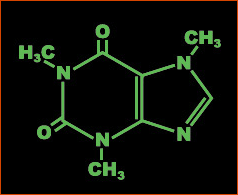 Welcome to a guest edition of "Doggerel," where this time, Le Canard Noir will be rambling about a word that's been misused, abused, and probably rendered meaningless. Here it is, listed as "Quack word #12: Organic":
Welcome to a guest edition of "Doggerel," where this time, Le Canard Noir will be rambling about a word that's been misused, abused, and probably rendered meaningless. Here it is, listed as "Quack word #12: Organic": I believe that organic food is a con, is not necessarily more healthy for you, tastes no different, and is damaging to the environment.
I believe that organic food is a con, is not necessarily more healthy for you, tastes no different, and is damaging to the environment.There, I have got that off my chest, but unfortunately I now feel like I have just admitted to being a child murderer, a racist or even a supporter of George Bush's foreign policy.
Let me explain...
The word organic is now synonymous with everything good, healthy and caring. To be against organic is to be seen to be almost evil. Organic food has huge sections devoted to it in our supermarkets, and its not just food - our shampoos, clothing and beer can all be marketed as 'organic'.
What does the word mean? Its original meaning was a scientific one. The chemistry of carbon-based molecules is described as organic chemistry. As such organic chemistry is the chemistry of life. In this definition, everything alive, and everything we eat, drink or wear (as long as it is natural fibres) is organic. In science, all apples are organic. Indeed all crops are organic. But that is not what the supermarkets mean when the flog us expensive 'organic' veg.
In this context, organic is used to denote crops that have been grown according to certain standards. Those standards are certified by the Soil Association. This body was set up in the forties by a group of people who wanted to turn away from the growing industrialisation of agriculture which they saw as damaging in various ways, environmentally, bodily and spiritually. Their philosophy had been heavily influenced by Rudolph Steiner who had a lot of mystical beliefs about the nature of soil. The basis of the philosophy was that farming should make use of local materials and maximise the use of manures and local grown animal feeds. Other beliefs involved planting at certain phases of the moon and encouraging 'elemental forces' into animals and seeking the help of 'non-physical beings'.
Now it does not really matter if some of the more unhinged ideas were clearly batshit. The Soil Association has continued with the ideas about using manure rather than fertiliser, limited pesticides and limited drugs. The reason for this is so that we have healthier food, more sustainable farming and other benefits like better tasting food and less impact on wildlife.
Great. But the big question is to ask if this is actually true. What evidence is there that organic farming is healthier, tastier, more environmentally friendly and more sustainable?
Now the Quackometer Project is about exposing exaggerated health claims and so I would like to focus on the health claims for organic farming methods. Dick Tavern in his excellent book, The March of Unreason – science, democracy and the new fundamentalism, devotes a chapter to exposing the myths of organic methods and points out things like:
- Tests conducted by independent consumer organisations show that people cannot taste the difference between organic and non-organic foods.
- The rules for pesticides and fungicides use have no 'rhyme or reason'. Older, more damaging chemicals like copper sulphate are allowed, but more modern and specific ones are not.
- If most farming became organic then we would have returned to a time when crops were vulnerable to large scale blights, high labour costs were required and low yields the norm. The poorest in the world would suffer enormously.
- Low yield crops need more land and that is damaging to the environment with more forest clearing and less land set aside.
So what about health? The main issue tends to focus on the 'evils' of pesticide residues. The problem here is that although pesticides can harm in large doses, there is no evidence that they harm at the minute quantities left on foods. As Dick Tavern points out in his book,
In fact every mouthful of food contains some poison, as does every sip of water. Carcinogenic' substances are routinely consumed by all of us in the form of natural chemicals made by plants to repel predators, but at amounts so low they do not harm us. ... There are some dioxons in every breath of air we take
It's all in the dose. Only homeopathists believe that insignificant doses have huge effects. Sir John Krebbs in Nature noted that a cup of [even organic] coffee contains natural carcinogens equal to a year's ingestion of synthetic carcinogenic substances found in the diet. Part of the problem is that our analytical measurement techniques can spot the tiniest traces of substances. But just because we can detect something does not mean that we need worry about it. Plants produce their own natural pesticides and we consume far more of that than the trace residues of the artificial stuff sprayed on. Concern about pesticide residue is just a modern phobia with no basis in evidence.
If there is little basis in fact for the claims made by the organic movement then it looks like the word organic is just one more advertising word used to push expensive, unnecessary products on us. Furthermore, and more damning, by focusing on organic production, our society pays less attention to farming methods and technology advances that really could improve health, protect wildlife and ensure a consistent quality and quantity of food supply. Rather than securing our health, the illogical worship of the word 'organic' could be damaging us all.
As such, I have no reservation in including the word 'organic' in the Quackometer Project. Promoting food that is grown according to 'organic' principles because it is supposed to be healthier for us is just one more form of quackery.
 Aside from the well-known agricultural aspect to the term, I imagine there are plenty of other ways woos have used the term "organic" in dubious manners. Most of the time, they've altered the definition to suit their purposes, since, as the little black duck pointed out, it's a "virtue word" nowadays.
Aside from the well-known agricultural aspect to the term, I imagine there are plenty of other ways woos have used the term "organic" in dubious manners. Most of the time, they've altered the definition to suit their purposes, since, as the little black duck pointed out, it's a "virtue word" nowadays.The only time I want to hear the word "organic" is when it involves a lot of chemical equations with lots of carbon atoms, or when some artsy guy is describing the nature of a curve.
---
Doggerel Index
11 comments:
I believe the definition my chemistry teacher gave me for "Organic" was a molecule containing both Carbon-Carbon and Carbon-Hydrogen bonds. Of course, it's purely arbitrary. Silicone chains (alternating Carbon-Silicon chains) have many similar properties to Carbon chains, yet they're not "Organic" for some reason. Even in the chemical world, the word seems to qualify for a Doggerel entry.
Personally, I can't stomach inorganic food...
Personally, I can't stomach inorganic food...
I'd recommend you get a friend to help you out with a test of this. Get two versions of some food that you generally like, one "organically" grown, one "inorganically." Do a little scientific experiment to see if you can tell them apart (have your friend present both to you, with s/he knowing which is which but not you). Of course, one trial isn't enough to prove it scientifically one way or the other, so repeat it if necessary.
If you're anything like the people in the studies mentioned in this post, you won't be able to taste the difference. Most likely, your perception that you can't stomach inorganic food is a psychosomatic response to your bias against them.
Infophile, I think your sarcasm detector is on the fritz.
The weirdest use of "organic" I ever heard was the statement that "cooking food makes it inorganic." At that very moment I refused to believe that the subject being discussed had any basis in reality, and it has since caused fights between myself and the one who uttered it.
Perhaps the pesticide residue on the produce is washed away before it is eaten, but what about the pesticide (and fertilizer) that is washed away from the fields?
I don't disagree with you completely -- I don't have the evidence to do so -- but I can't help thinking that spreading large amounts of chemicals in places they do not naturally occur has the potential for serious harm.
True, pesticide runoff can be a problem. That's one reason I'm rooting for GM crops that have built-in protections from pests.
That's the tricky thing about the environment: It's hard to minimize your impact.
infophile wrote: "I believe the definition my chemistry teacher gave me for 'Organic' was a molecule containing both Carbon-Carbon and Carbon-Hydrogen bonds. Of course, it's purely arbitrary. Silicone chains (alternating Carbon-Silicon chains) have many similar properties to Carbon chains, yet they're not 'Organic' for some reason. "
By the definition you give, methane is not organic (no C-C bonds since there's only one C atom in it.) That does seems rather arbitrary. The definition my chem teacher gave just required carbon and hydrogen which makes methane organic, but carbon dioxide inorganic. Actually requiring the hyrdogen isn't completely arbitrary if you consider that the word "organic" comes from the word "organism."
Le Canard Noir wrote:
"Their philosophy had been heavily influenced by Rudolph Steiner who had a lot of mystical beliefs about the nature of soil."
Rudolph Steiner? Are you serious? I associate that name with biodynamics which makes "organic" farming look conventional. "Batshit" doesn't begin to cover it.
Oh Bronze Dog... You were looking for something to eviscerate. How about biodynamics? While you're at it, there's an obvious follow up Doggerel post: The misuse of the word "chemical" as the opposite of organic.
Inquisitive Raven
Thank you, Big C, although I suppose infophile's read is valid (maybe a /snark instead of ...). What I meant was that I have trouble digesting food made from nonorganic materials (plastic, metal, etc.).
There is also a third side to the argument though. In some products, there is a difference in taste that not everyone can appreciated. I bake. I'm picky. The fact that 90% of the people who eat my stuff would go oh that's good regardless of execution problems that frustrate me is irrelevant. There are a few recipes that you can't substitute and get the same result. (A prime example being one of my grandmother's coffee cake recipes that I fought to get right for years--I had the text, but I'd never seen her make it. I finally realized she always used McCormick's Vanilla Extract. It's a way less complex vanilla than I use for my cakes, but to get the taste of that item correct, I can't substitute something else.)
So, there is another explanation for not tasting the difference: your palate isn't as sensitive to the differences. And just because most people's aren't doesn't mean that there isn't a difference.
The real problem is food containing DNA. Even organic food contains DNA! Join the movement for DNA free food.
Heh, didn't check this post for a while. Just wanted to point out that I wish I could always assume that statements like Usagi's are sarcasm. Unfortunately, with people out there crazy enough to say stuff like that (and much worse) seriously, my sarcasm detector is up for a major retuning.
Post a Comment